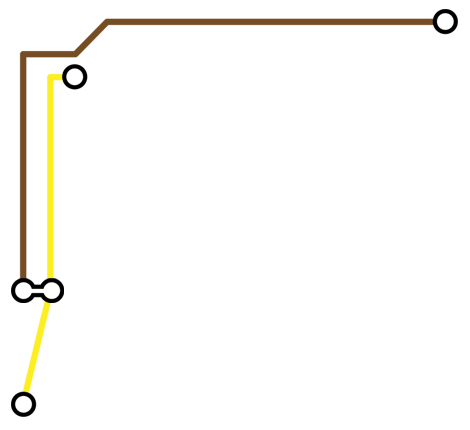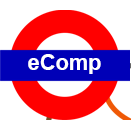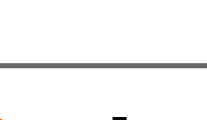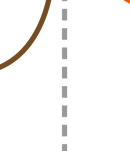Pathways to Professional Development

ENG 540 Syllabus
COURSE DESCRIPTION
In this class, you will learn about the theory behind online teaching and multimodal composition. Beth Hewett and Christa Ehmann (2004) indicated that teachers are often concerned about teaching online for the first time; however, they suggested that this worry is caused by a lack of proper training. This course will prepare you to teach your online course, helping you understand the best practices of designing a course, facilitating course discussions, holding online conferences, and providing feedback. In addition, the class will also be practical, as you will develop your own course shell to teach in the subsequent semester. The class you’ll teach will be part of our new online program, eComp, which is based on a multimodal pedagogy, where students are asked to choose their medium in response to the needs of their audience and the purpose of the document. As such, this class will teach you the theory and pratice of multimodal composition, helping you create materials such as assignments and multimodal instructional tools that mimic the texts your students develop.
GOALS OF THE COURSE
- To learn the theories that inform online teaching
- To learn the theories that inform multimodal composition
- To develop an online course shell that utilizes multimodal instruction
- To craft an online teaching portfolio for the job market
- To learn to write a digital scholarly text for publication
REQUIRED TEXTS
Hewett, B. & Ehmann, C. (2004). Preparing educators for online instruction: Principles and processes. Urbana: National Council for the Teachers of English. The bookstore could not find this book, so I’m just going to require Chapters 2, 3, & 4, which I will place in Blackboard.
Takayoshi, P. & Selfe, C. (2007). Multimodal composition: Resources for teachers. Cresskill: Hampton Press.
*I’ve placed all other readings on Blackboard
ASSIGNMENTS
The major assignments within this course include the following:
- Digital Literacy Narrative. In this assignment, you will write a text-based essay detailing how you came to use technology in your life and in your teaching. What are your goals for using technology more in your classes?
- Electronic Teaching Portfolio. You will create a teaching portfolio that consists of three multimodal assignments, an electronic portfolio assignment, and the corresponding rubrics for each. You must also have a teaching philosophy, which you can develop from your digital literacy narrative.
- Multimodal Composition Assignment. I’m a believer that we should be creating the same types of documents that our students create to see where they might stumble and how we might improve the topic or context. You and a partner will swap one project, complete it, then create a short Jing video, giving feedback to your partner and making suggestions for improvement.
- Digital Scholarship. Using Google Sites or other web-developing software, you will write/create a digital article for Kairos or Computers and Composition Online, discussing an issue in digital composing (a gap in the scholarship of some sort). The topic is your choice, and I’ll help you develop the idea if needed.
- Online Course Shell Development. The latter part of the class will be devoted to teaching you how to develop your own course in Blackboard, using such software as Camtasia and Jing to develop multimodal instructional tools.
OTHER RESPONSIBILITIES
Student-led Discussions. At some point during the semester, you and a partner will choose a reading and present it to the class. On this day, you will lead a productive discussion for your peers. You must also have a visual (I’d like you to think beyond the traditional PowerPoint presentation).
Online Discussions. Each week, one of you will post a question for your peers to respond to via Blackboard. This activity will help you learn how to phrase questions for an online forum and how to keep the ball rolling with active responses.
Mini Presentation. You will present your final project to your peers, showcasing the gap in the scholarship you’ve identified and an explanation of how your research fills this gap.
Participation. We will spend much of our class time in discussions and workshops. Regardless of the class format, you are expected to be prepared for class, to listen, to contribute, and to participate in an appropriate fashion (this means you must participate in the discussion by talking and presenting challenging ideas).
POINTS BREAKDOWN
Digital Narrative = 150
Multimodal Assignment = 150
Teaching Portfolio = 200
Digital Scholarship = 300
Student-led Discussion = 50
Online Discussion Forum and Participation = 75
Mini Presentations of Final Project = 75
Total = 1000 points
GRADE SCALE
Letter grade value ranges are as follows:
A+ = 97-100+%
A = 93-96.9%
A- = 90-92.9%
B+ = 87-89.9%
B = 84-86.9%
B- = 80-83.9%
C+ = 77-79.9%
C = 74-76.9%
C- = 70-73.9%
D+ = 67-69.9%
D = 64.66.9%
D- = 60-63.9%
F = 0-59.9%
POLICIES
Cell Phones and Other Technology. Turn your cell phones off or to vibrate if you need to have access for emergencies. When it comes to bringing your laptop, it goes without saying that I want you to be focused on what we are doing in class.
Attendance. Please don’t be late for class. If you are late more than three times, I may deduct points from your final grade. You are allowed only two absences in this class; after that, you may fail the class.
Late Work. I will not accept late work unless you arrange an alternate due date BEFORE the stated due date. This policy means that if you turn in a paper late, I may give you an “F” on the assignment. If I deem that there were extenuating circumstances, I will deduct points for lateness as I see fit.
Plagiarism. Plagiarism is a form of theft. It is grounds for failing the course. Plagiarism occurs when a writer uses someone else’s phrasing, sentences, or distinctive insights without giving proper credit. Be sure to acknowledge your sources! In this age of downloadable papers, remember that turning in work that, in whole or in part, is not your own is also plagiarism. When in doubt about quotation, citation, or acknowledgment of sources, see me for help.
Students with Disabilities. If you have a disability and will be requiring assistance, please contact me as soon as possible to arrange for accommodations.























